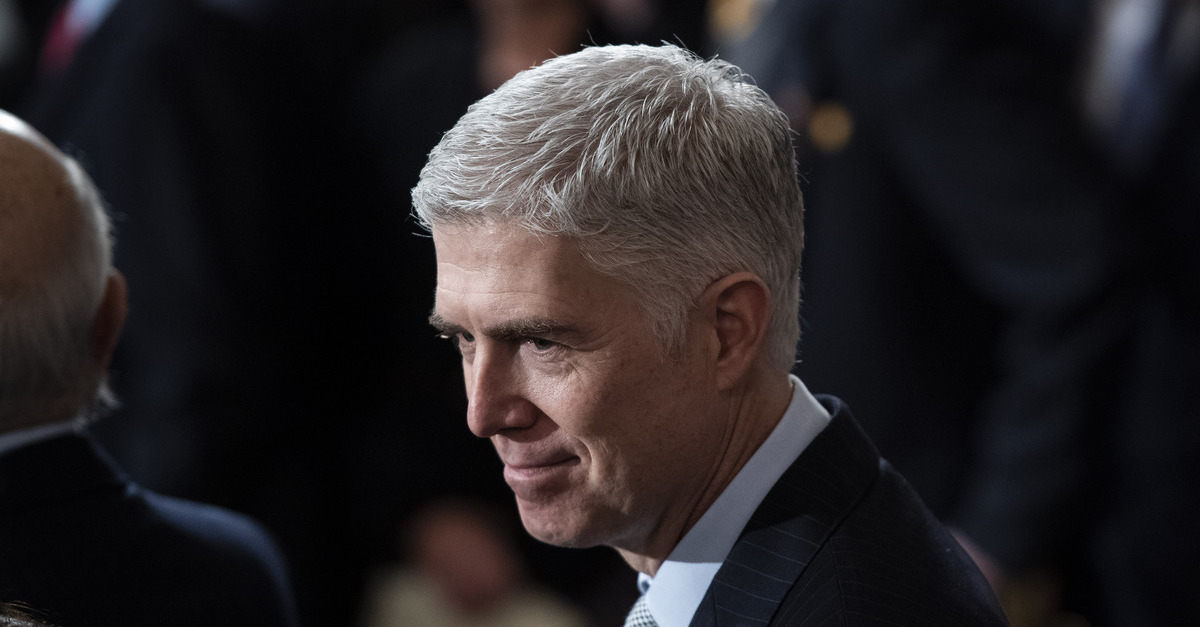
The U.S. Supreme Court on Thursday ruled that the eastern half of Oklahoma is, and has been for nearly two centuries, a Native American Indian reservation. The 5-4 decision fell along ideological lines, with Justice Neil Gorsuch, the only justice from the western U.S., siding with the court’s liberal bloc.
In a 42-page decision penned by Justice Gorsuch, the court reasoned that because Congress never disestablished the Native American reservation—established through a series of treaties with granting all land West of the Mississippi River to the “the Creek Nation of Indians—that land remains a Native American reservation.
“Today we are asked whether the land these treaties promised remains an Indian reservation for purposes of federal criminal law. Because Congress has not said otherwise, we hold the government to its word,” Gorsuch wrote.
The controversy stemmed from the prosecution of Jimcy McGirt, a member of the Muscogee (Creek) Nation tribe who in 1997 was convicted by state authorities on charges of sex crimes against a child. McGirt’s attorneys argued that because Congress never terminated the Muscogee reservation, the eastern half of Oklahoma remained sovereign territory, McGirt should have been tried in federal court.
The court first attempted to address the issue over the territorial dispute in 2018, following an appeal from a ruling of the Tenth Circuit Court of Appeals which held that the land was indeed a tribal reservation. The justices heard arguments in Sharp v. Murphy in 2018, but took on McGirt’s case instead, likely because Justice Gorsuch–who participated as a federal appellate judge when the case was in circuit court—had to recuse himself.
Oklahoma’s solicitor general argued there was no need for Congress to disestablish the reservation and transfer authority to the state because the land was never a legally established reservation; ruling otherwise would throw the state into chaos, the argument went.
The decision has significant implications for Oklahoma’s 1.8 million residents, as state authorities have no jurisdiction to prosecute crimes committed on Native American territory, and many previously state convictions are likely to be called into question.
Gorsuch addressed this point head-on, saying “the magnitude of a legal wrong is no reason to perpetuate it.”
“Looking to the future, Oklahoma warns of the burdens federal and tribal courts will experience with a wider jurisdiction and increased caseload,” the opinion said. “But, again, for every jurisdictional reaction there seems to be an opposite reaction: recognizing that cases like Mr. McGirt’s belong in federal court simultaneously takes them out of state court. So while the federal prosecutors might be initially understaffed and Oklahoma prosecutors initially overstaffed, it doesn’t take a lot of imagination to see how things could work out in the end.”
Gorsuch last year also provided the decisive vote when the court ruled in favor of Native American rights, holding that a nineteenth century treaty did not expire when Wyoming became a U.S. state.
Read the full decision below:
[image via Jabin Botsford – Pool/Getty Imagess]